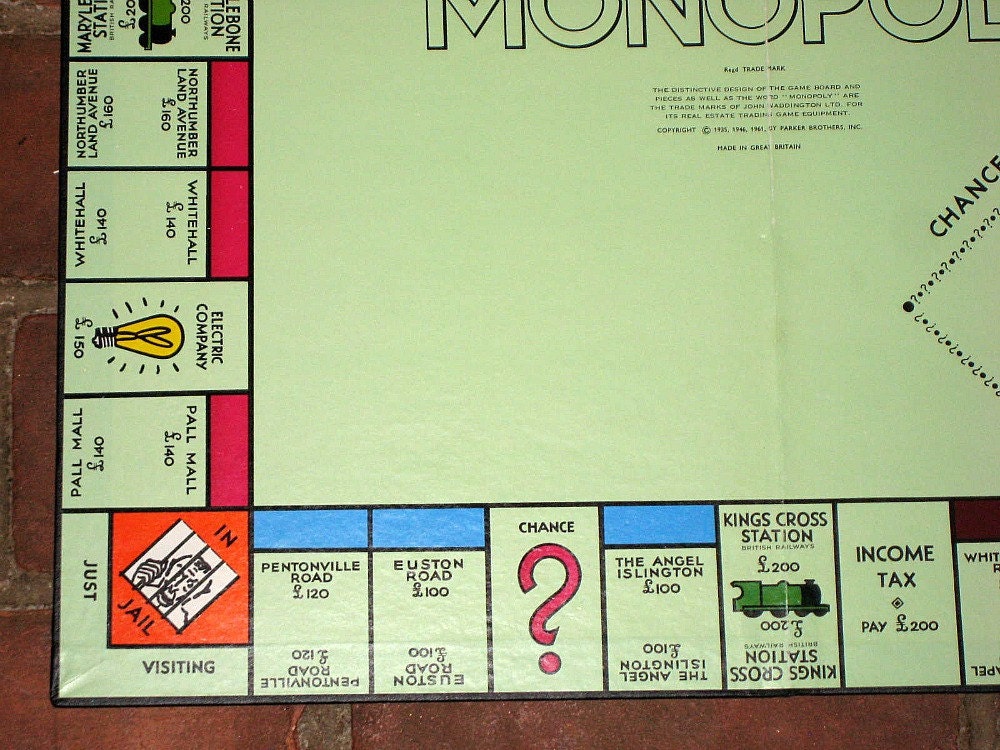

Every soldier that was about to be sent on a mission was told about the escape kits in case they were captured.Ī special mark was used on each escape board to show which map was hidden in it. The ‘escape boards’ were given to fake charities to send out to German prison camps for the POWs. The Germans thought that playing games would distract the POWs from trying to escape and make them easier to control. As part of the Geneva Convention Germany allowed charities to send POWs games to play. The next challenge was to smuggle the ‘escape boards’ into the Nazi prison camps.

Silk maps also wouldn’t rustle and attract the attention of prison guards. Why do you think this was important? Silk was the best materials for the maps because it wouldn’t tear or dissolve in water as easily as paper and was light enough to crumple up into a small space. Hutton was careful to make sure ‘escape boards’ were the same weight and depth as the original Monopoly boards. Other tools like knives, metal files, miniature compasses, rope and real money were also hidden in the boards. The escape kits included silk maps of European countries, such as Norway, Sweden, Germany, France, and Italy. Waddington’s had been producing games like Monopoly for years. In 1941 Hutton worked with Waddingtons on an ingenious plan to create escape kits hidden inside Monopoly boards. Hutton experimented with lots of different escape ideas including: cloth maps sewn into uniforms, compasses so small they could be hidden on the back of a buttons, blankets with clothing patterns on them, which could be cut and sewn together by POWs and shoe heels with knives hidden in them. German prison guards discovered many of these and so Hutton was always thinking of new ideas. MI9’s role was to get as many back to safety as possible and Hutton’s role was very similar to James Bond’s Q. During the war, large numbers of British airmen crashed over enemy airspace and were then held as prisoners behind enemy lines.

In 1939 Hutton was employed by the British Secret Service MI9 to help prisoners of war escape from German prison camps across Europe. Hutton was a soldier, journalist and inventor and had always been fascinated by escapology, having met Harry Houdini when he was young.

The story starts with someone called Christopher Clayton Hutton and the famous game company Waddington’s, which was based in Leeds. It was made by Waddingtons in Leeds.īut did you know that during WW2 monopoly boards helped thousands of Allied soldiers escape from German prison camps? This is a story of intrigue, deception, invention, bravery and adventure. The game of monopoly has been around since the early 1900s.


 0 kommentar(er)
0 kommentar(er)
